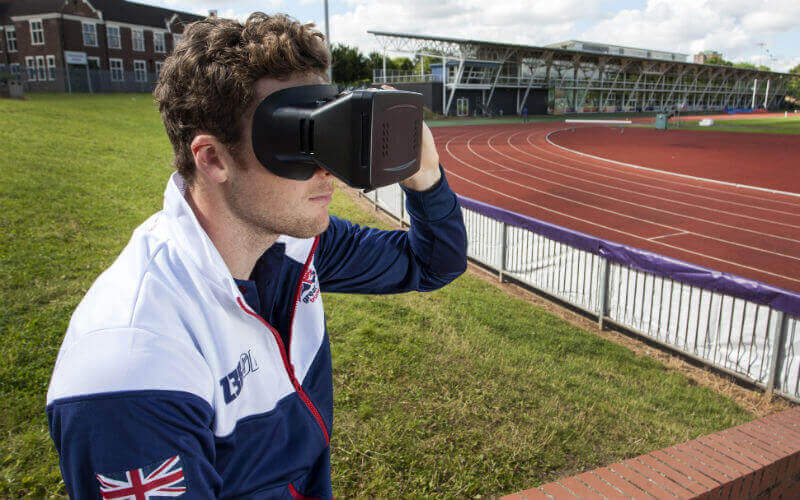When it comes to technological advancements in sports, one trend that has revolutionized training techniques and fan engagement is Virtual Reality (VR). While VR may be most commonly associated with the gaming industry, its use in the realm of sports has yielded impressive results. From enhancing player performance to providing a unique viewing experience for fans, the potential of VR in sports is vast and exciting.
Unleashing the Athlete’s Potential
Virtual Reality has transformed the way athletes train, offering a more immersive and efficient experience. Gone are the days of video analysis and traditional training methods alone. Nowadays, athletes can step inside a virtual environment that replicates their sport, providing unparalleled opportunities for skill-building and mental preparation.
For instance, a basketball player can practice shooting in a virtual gymnasium, where they can master their technique and develop muscle memory without ever stepping foot on a real court. This not only increases the number of quality repetitions but also allows players to experiment with different scenarios and strategies. Such simulations enable athletes to fine-tune their decision-making skills and effectively deal with high-pressure situations.
A Game-Changing Viewing Experience
VR is not limited to athletes alone; it has also transformed the way fans consume sports. By donning a VR headset, spectators can transport themselves into the stadium or arena, immersing themselves in a 360-degree view of the action. This technology creates a sense of being physically present at the game, allowing fans to feel the energy and excitement from the comfort of their own homes.
Beyond the live experience, VR also provides users with unique perspectives and additional content. Fans can choose to follow a specific player on the field or watch the game from various camera angles, giving them a more comprehensive understanding of the sport. Moreover, VR opens the door to interactive elements, such as engaging with statistics in real-time or virtually joining conversations with fellow fans.
The Future of Sports
As VR continues to evolve, its impact on sports will undoubtedly grow. The potential applications of this technology are vast, ranging from athlete rehabilitation to scouting new talent. In the near future, we can expect to see more athletes incorporating VR into their training routines and coaches employing it for strategic planning.
Additionally, VR has the capacity to connect fans globally, bridging physical distances and cultural barriers. As the technology becomes more accessible and affordable, sporting events may witness a surge in virtual attendance, bringing fans from all walks of life together for a shared experience.
Ultimately, virtual reality has the power to revolutionize how we perceive and engage with sports. Its ability to transcend the limitations of time and space creates new opportunities for athletes, fans, and the industry as a whole. By embracing this innovative technology, the world of sports can continue to evolve, making each game more immersive, compelling, and accessible than ever before.
In conclusion, virtual reality is no longer just a concept of the future; it is already making waves in the sports arena. With its ability to unlock an athlete’s potential and transform the fan experience, VR is set to redefine the landscape of sports. As this technology continues to advance, it will undoubtedly shape a future where physical and virtual realms converge, truly harnessing the power of sports in a way that was once unimaginable. So, strap on your VR headset and get ready to dive into a world of unparalleled excitement and opportunity.

